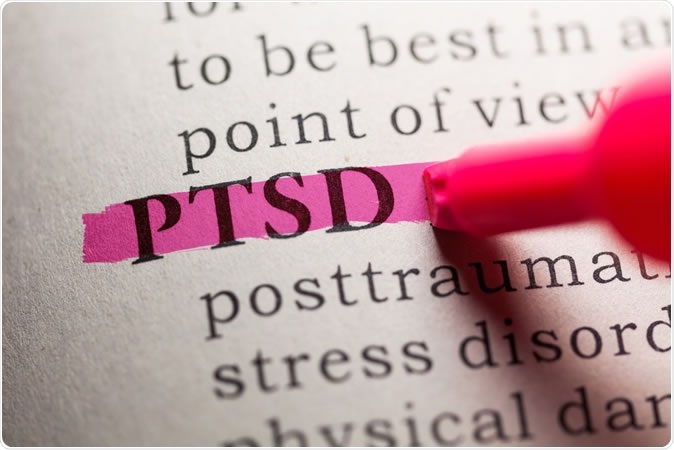
Image Credit: Feng Yu / Shutterstock
The World Health Organization (WHO) reports that about 3.6 percent of the world’s population had experienced PTSD in a given year. In the United States, the condition affects 3.5 percent adults, and approximately one in 11 people will be diagnosed with PTSD in their lifetime, which is about 8 million adults.
PTSD may develop in people who experience a traumatic event, but the exact reason why only a fraction of people develops the condition is still unclear. Some studies have shown that the condition is only a social effect, but other studies pointed out that genetics may play a role in the emergence of the illness.
Now, a team of researchers at UC San Diego Health determined the link between genetics and PTSD. In a multi-ethnic cohort including more than 30,000 PTSD cases and 170,000 controls, the researchers conducted a genome-wide study to determine if the risk of developing PTSD is heritable.
The study, which was published in the journal Nature Communications, the team of researchers demonstrated significant genetic correlations in 60 PTSD cohorts. This is the largest and most diverse genetic study of PTSD, showing that PTSD has a strong genetic component just like other mental health disorders.
The research aims to formulate new tools that can provide knowledge and the ability to clinicians to predict patients with the greatest risk of developing PTSD. This way, they can tailor their treatments to the patient’s needs. There is no guarantee that people are protected from trauma, but there should be timely and appropriate treatments available.
PTSD is polygenic
Just like other psychiatric disorders, PTSD is polygenic, which means that it is linked with thousands of genetic traits. All these genetic traits contribute to the condition. A total of three genome-wide significant risk loci were determined, one in African ancestry and two in European ancestry analyses.
The researchers also identified and studied the data based on sex, and another three risk loci have been identified in men, again, one in African ancestry and two in European ancestry. Surprisingly, the gene involved in Parkinson’s disease, PARK2, which is vital for the regulation of dopamine, is also tied to PTSD.
"Based on these findings, we can say with certainty that there is just as much of a genetic component to PTSD risk as major depression and other mental illnesses," Karestan Koenen, a professor of psychiatric epidemiology in the Harvard T.H. Chan School of Public Health, said.
“Our limited ability to study the living human brain and uncover the biological roots of PTSD has contributed to the lack of treatments and the stigma around this debilitating condition. Genetics helps us make discoveries, find opportunities for new therapies, and counter that stigma,” she added.
The researchers emphasize the importance of having a better understanding of genetic risks, biological mechanisms, and the disease process linked with PTSD. This way, scientists can come up with medical breakthroughs for better prevention and treatment of mental illness.
PTSD can take a toll on the lives of many people affected, which can lead to other arrays of health and psychiatric issues. The researchers encourage that further research should be conducted to determine other ways to treat and manage PTSD, hence, helping millions who suffer from the condition.
More about PTSD
Post-traumatic stress disorder (PTSD) is a disorder that usually develops when a person experiences a traumatic, shocking, dangerous, or scary event. The common signs and symptoms of the disorder include flashbacks of the traumatic event, bad dreams, and frightening thoughts. Other symptoms include staying away from places, people, or events that remind of the experience, having a tense feeling, being easily startled, trouble remembering key features of the event, distorted feelings, and loss of interest in enjoyable activities.
Journal reference:
Nievergelt, C. Maihofer, A., and Koenen, K. (2019). International meta-analysis of PTSD genome-wide association studies identifies sex- and ancestry-specific genetic risk loci. Nature Communications. https://www.nature.com/articles/s41467-019-12576-w